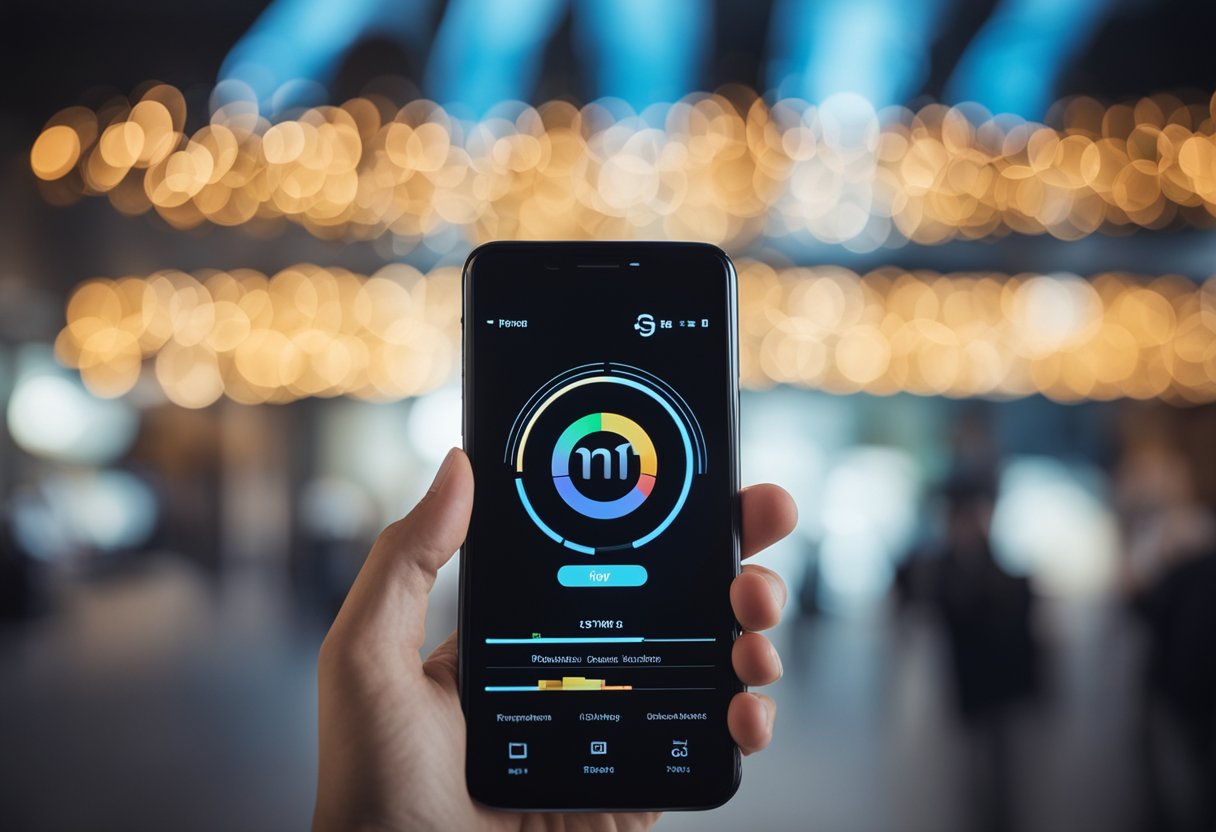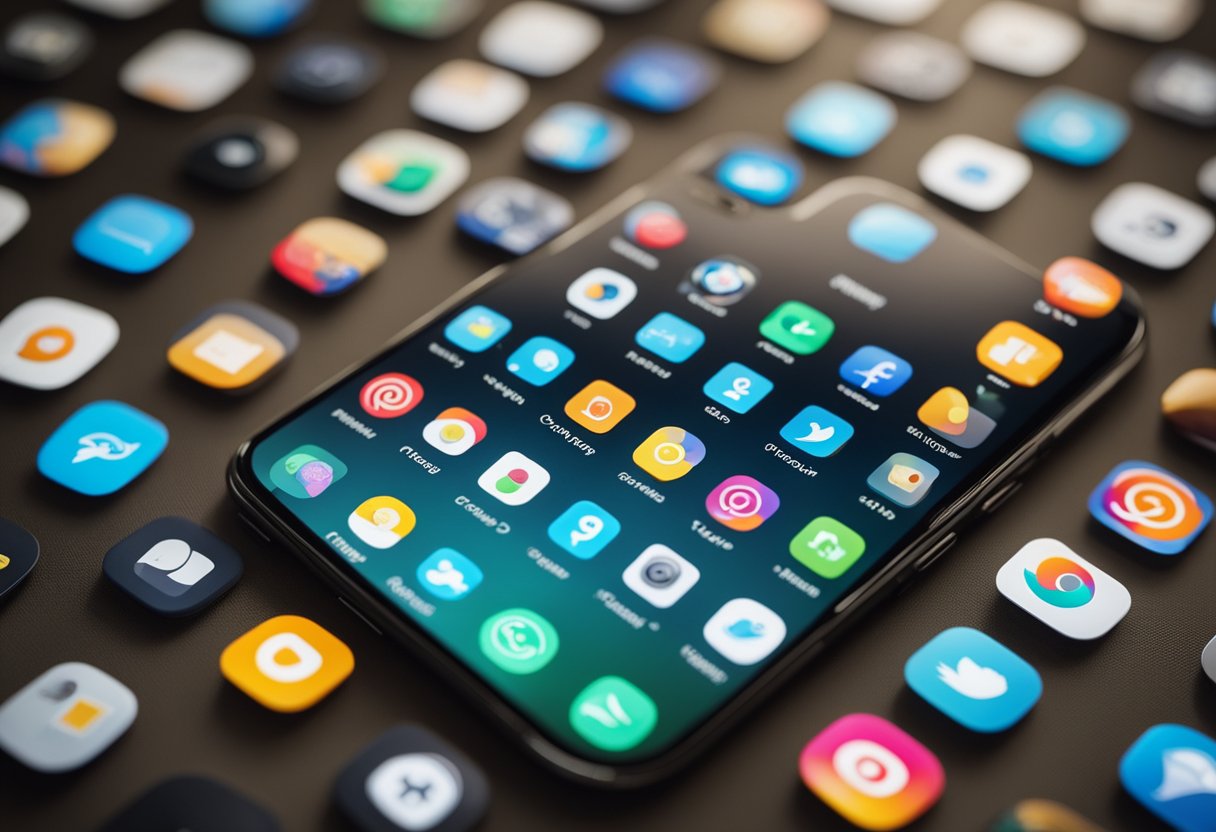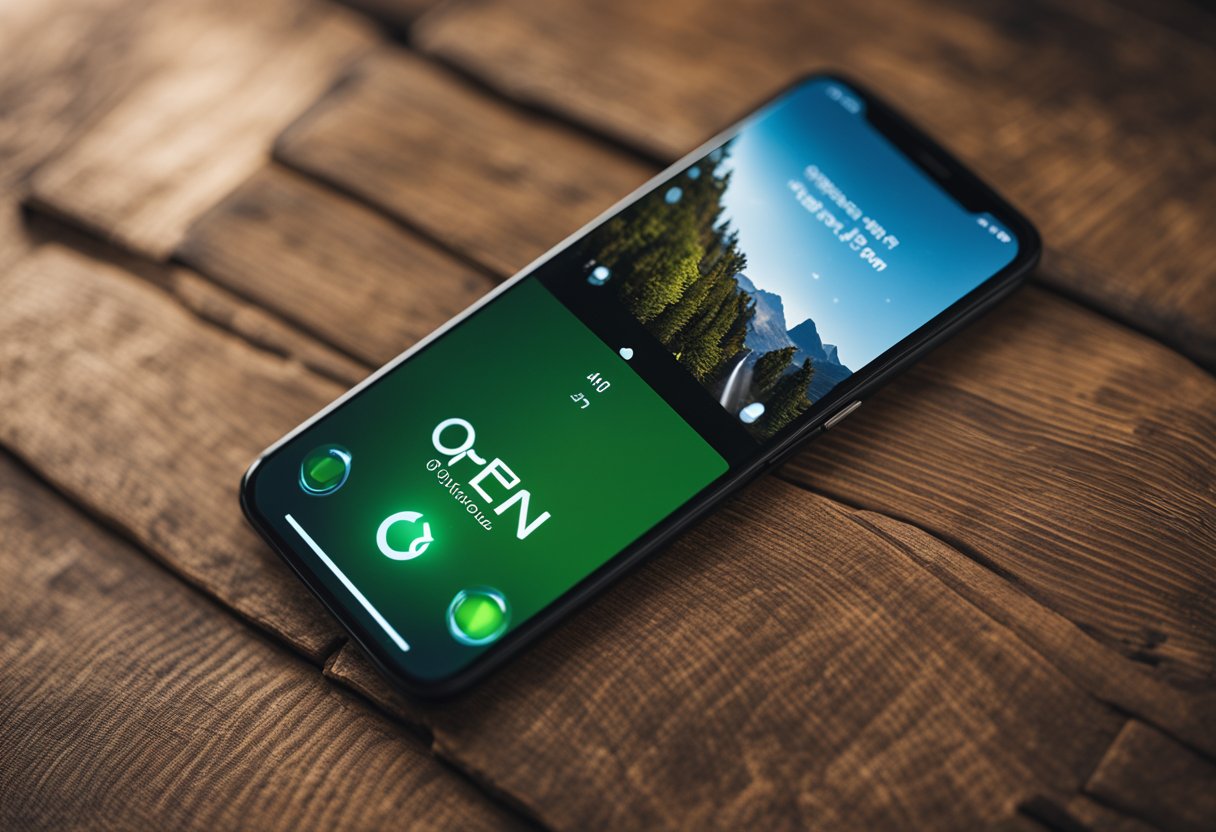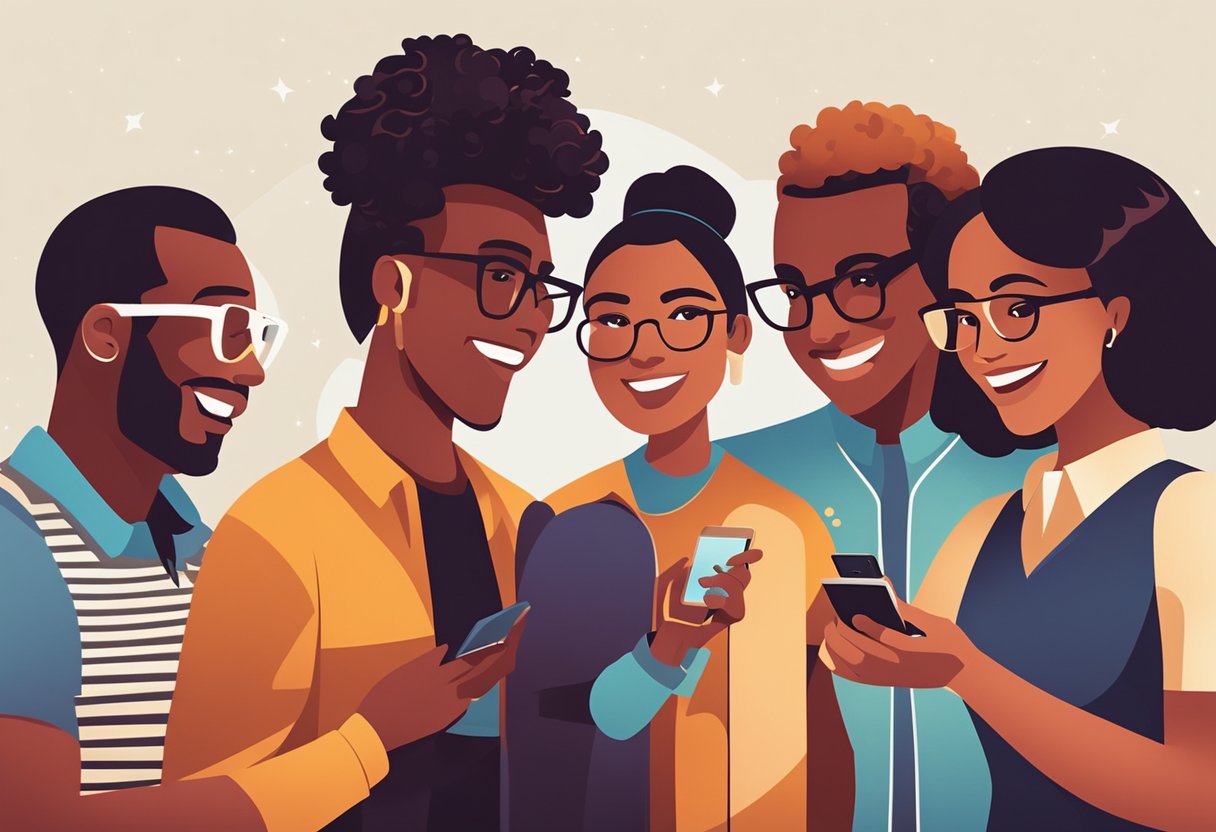Many people wonder who’s behind the popular messaging app Signal as it gains more users looking for private communication options.
Signal is owned by the non-profit Signal Foundation. The organization was established to ensure the app remains independent and free from advertising or data tracking. The foundation was founded by Moxie Marlinspike, who created Signal, and Brian Acton, who previously co-founded WhatsApp before it was sold to Facebook.

The ownership structure of Signal is quite different from other messaging apps. Unlike WhatsApp (owned by Meta) or Telegram, Signal operates as a non-profit with a clear mission to provide secure messaging without compromising user privacy. This structure allows Signal to focus on privacy features rather than monetizing user data.
Key Takeaways
- Signal is owned by the non-profit Signal Foundation, ensuring it stays independent and ad-free.
- The app was created by Moxie Marlinspike with funding support from WhatsApp co-founder Brian Acton.
- Signal’s ownership structure supports its mission to provide secure, private messaging for everyone.
Ownership of Signal
Signal, the popular private messaging app, stands apart from many tech companies because of its unique ownership structure. It operates as a non-profit organization with a mission focused on privacy rather than profit.
Signal Foundation
The Signal Foundation is the nonprofit organization that owns and operates the Signal messaging app.
Founded in 2018, this independent entity was created to ensure Signal remains free from advertising and data tracking. Unlike commercial apps, Signal doesn’t have shareholders expecting returns on investment. This structure allows the app to focus entirely on user privacy.
The foundation receives funding from donations and grants rather than selling user data or showing ads. This funding model supports Signal’s privacy-first approach.
Signal Messenger LLC is the software company that actually develops the app, but it’s wholly owned by the Signal Foundation. This arrangement helps maintain Signal’s independence.
The foundation reported revenue of $35,750,994 in 2023, showing significant support for its privacy-focused mission.
Brian Acton
Brian Acton plays a crucial role in Signal’s story. He co-founded WhatsApp before it was sold to Facebook (now Meta). After leaving WhatsApp, Acton used $50 million of his own money to help establish the Signal Foundation.
Acton serves as the Executive Chairman of the Signal Foundation. His experience with WhatsApp and subsequent concerns about privacy likely influenced his decision to support Signal’s development.
Working alongside Moxie Marlinspike (Signal’s founder), Acton helped create an organizational structure that protects Signal from commercial pressures. Their partnership formed the basis for Signal’s current ownership model.
Acton’s financial contribution and leadership have been essential to Signal’s growth as a privacy-focused alternative to commercial messaging apps.
Leadership and Management

Signal’s leadership structure plays a critical role in maintaining the app’s commitment to privacy and security. The organization is guided by a team of experienced executives who prioritize user privacy above all else.
Role of the CEO
Signal has seen changes in leadership over time. Brian Acton, who co-founded WhatsApp in 2009 before it was sold to Facebook in 2014, serves as the Chairman of the Signal Foundation. He also took on the role of CEO of Signal Messenger LLC.
Acton’s leadership has been instrumental in shaping Signal’s privacy-focused mission. He helped establish the Signal Foundation with an initial $50 million donation, showing his commitment to creating a truly secure messaging platform.
In early 2022, the company announced leadership changes. The transition of power demonstrated Signal’s adaptability while maintaining its core values of privacy and security.
The CEO position at Signal comes with unique challenges. The leader must balance growth objectives with the app’s strict privacy commitments, all while competing with messaging apps that have fewer privacy restrictions.
Meredith Whittaker’s Influence
Meredith Whittaker serves as president of the Signal Foundation and has brought significant expertise to the organization. Her background in technology ethics and privacy advocacy aligns perfectly with Signal’s mission.
Whittaker’s leadership style emphasizes transparency and user privacy above profit motives. She has been vocal about the dangers of surveillance capitalism and how Signal provides an alternative to data-harvesting business models.
Under her guidance, Signal has maintained its strong stance against including backdoors or weakening encryption, even when faced with pressure from various governments. This principled approach has earned the trust of millions of users worldwide.
Whittaker regularly engages with the technology community to advocate for privacy rights. Her influence extends beyond Signal, as she helps shape broader conversations about digital rights and responsible technology development.
Signal’s Mission for User Privacy
Signal Foundation’s mission centers on protecting free expression and enabling secure global communication through open-source privacy technology. The app has become the world’s most widely used truly private messaging platform, with strong privacy features built into its core design.
End-to-End Encryption
Signal uses state-of-the-art end-to-end encryption for all communications. This means only the sender and recipient can read messages – not even Signal can access them.
The app’s encryption protocol (known as the Signal Protocol) has been praised by security experts worldwide. Many other messaging apps have actually adopted this protocol because of its effectiveness.
Signal doesn’t just encrypt messages. It also secures voice calls, video calls, and group chats with the same powerful encryption.
This commitment to encryption comes from Signal’s belief that private conversations should stay private. Their technology ensures conversations remain confidential regardless of government or corporate interests.
User Data Protection
Signal’s approach to data protection differs greatly from most tech companies. The Signal Foundation collects minimal user information – only what’s absolutely necessary to provide their service.
The app doesn’t store your contacts, conversations, or location data on their servers. Instead, this information stays securely on your device.
Signal doesn’t create user profiles or track how people use the app. This means no targeted ads and no data selling to third parties.
When Signal does need to temporarily store information (like during message delivery), they encrypt it and delete it as soon as possible. They’ve designed their systems to know as little about users as possible.
Privacy Policy
Signal’s privacy policy reflects their strong commitment to user privacy. Unlike complicated policies filled with legal jargon, Signal’s policy is straightforward and user-friendly.
The policy clearly states that Signal doesn’t sell, rent, or monetize user data or content in any way. This stands in stark contrast to many free apps that fund operations through user data.
Signal operates as a non-profit organization under the Signal Foundation, which helps maintain its independence from commercial pressures. The app is funded primarily through donations and grants.
Their privacy policy also explains how Signal uses minimal metadata and doesn’t log user activity.
Signal vs Other Messaging Apps

When comparing messaging apps, Signal stands out due to its strong privacy features and independent ownership. Let’s see how it stacks up against other popular messaging platforms and why many privacy-conscious users choose it.
Comparing Security Measures
Signal offers end-to-end encryption for all communications by default. This means only the sender and receiver can read messages, with no ability for the company to access content.
Signal’s encryption protocol is so respected that other apps have adopted it. The app doesn’t collect user metadata (who talks to whom and when) which sets it apart from competitors.
All of Signal’s code is open source, allowing security experts to verify there are no hidden backdoors or vulnerabilities. This transparency builds trust among security professionals.
Signal also offers disappearing messages, encrypted group calls, and screen security features that prevent screenshots in some situations.
WhatsApp and Facebook Messenger
WhatsApp uses Signal’s encryption protocol but is owned by Meta (formerly Facebook). While messages are encrypted, WhatsApp collects more user metadata than Signal.
Facebook Messenger offers encryption only in “Secret Conversations” mode, which isn’t enabled by default. Regular conversations can be accessed by Meta and potentially shared with third parties.
Both WhatsApp and Facebook Messenger link to your identity and may share data across Meta’s platforms. This creates a more complete profile about users for advertising purposes.
Many users switched to Signal in 2021 when WhatsApp announced policy changes regarding data sharing with Facebook (now Meta).
User Trust and Adoption
Signal is developed by a non-profit organization that runs on donations rather than advertising or selling user data. This business model aligns with privacy goals.
Signal has been recommended by cybersecurity experts for over a decade. Even Edward Snowden has endorsed Signal for secure communications.
One drawback is that Signal requires phone numbers for registration, which some privacy advocates consider a weakness. Users must exchange phone numbers to connect.
Signal has fewer users than WhatsApp or Facebook Messenger, which can make adoption challenging if friends and family prefer other platforms.
Signal’s Features and Functionality

Signal offers a robust set of features designed with privacy and security in mind. The app combines user-friendly design with powerful communication tools that help people stay connected while maintaining control over their personal information.
Group Chats and Messaging Options
Signal’s group chat feature allows users to communicate with multiple contacts at once in a secure environment. Groups can include up to 1,000 members, making it suitable for both small family chats and larger community discussions.
The app includes several helpful messaging options to enhance conversations. Users can reply to specific messages, making it easier to keep track of discussions in busy group chats. The edit message feature lets people fix typos or update information after sending.
Signal also supports fun elements like:
- Stickers and emoji reactions
- Voice messages
- Photo and video sharing
- GIFs and file attachments
For time-sensitive communications, Signal lets Android users schedule messages to be sent later, perfect for remembering birthdays or sending reminders.
Support for Android Device
Signal works smoothly on Android devices with features tailored specifically for this platform. The app is lightweight and doesn’t drain battery life while running in the background.
Android users enjoy special customization options, including the ability to change the Signal app icon on their phones. This allows for personalization while maintaining privacy.
The app integrates well with Android’s notification system, providing alert options that can be adjusted based on conversation importance. Users can set different notification sounds for different contacts or groups.
Signal for Android also supports seamless backup and restoration when switching to a new device, ensuring conversations aren’t lost during upgrades. The process maintains the end-to-end encryption that Signal is known for.
User Experience and Interface
Signal’s interface strikes a balance between simplicity and functionality. The clean design makes navigation intuitive even for new users, with important features easily accessible.
The calling interface offers convenient options. For example, users can switch cameras during video calls with a single tap. Voice calls maintain the same high-quality encryption as text messages, ensuring private conversations remain secure.
Signal’s dark mode option reduces eye strain during nighttime use and helps conserve battery life on devices with OLED screens. Users can set the app to follow their system theme or choose a permanent light or dark setting.
Text formatting options like bold, italic, and strikethrough help users express themselves more clearly in messages. The app also includes a built-in photo editor for quick image adjustments before sharing.
User’s Guide to Signal

Signal offers a simple way to communicate privately with friends and family. The app is designed to be easy to use while keeping your conversations secure.
Getting Started with Downloads
To begin using Signal, you need to download the application for your device. Signal works on Android, iOS, and desktop computers, making it versatile for different platforms.
First, visit the Signal website or your device’s app store and download the official app. Be careful to get the genuine Signal app to ensure your security.
After installation, you’ll need to verify your phone number. This is how Signal identifies you instead of using usernames or passwords.
Setting up your profile is simple – add a display name and optional profile picture. Remember that Signal focuses on privacy, so you control what others see.
The app will also ask for permission to access your contacts. This helps you find friends who already use Signal, but it’s optional if you’re concerned about privacy.
Navigating the App
Signal’s interface is designed to be familiar to anyone who has used messaging apps before. The main screen shows your conversations, making it easy to find recent chats.
To start a new message, tap the compose button (usually a pencil or plus icon). You can send individual messages or create group chats with multiple contacts.
Key features include:
- Text messaging
- Voice and video calls
- Photo and file sharing
- Voice messages
- Stickers and reactions
Signal organizes conversations chronologically, with newest messages at the top. Tapping a conversation opens the chat where you can send messages or media.
The app also includes search functionality to find specific messages or conversations when you need them.
Understanding Signal’s Security Features
Signal stands out because of its strong security features. Every message sent through Signal uses end-to-end encryption, which means only you and your recipient can read the messages.
Privacy protections include:
- No one can see your messages (not even Signal)
- Disappearing messages that auto-delete after a set time
- Screen security to prevent screenshots in recent app lists
- Registration lock to protect your Signal account
Signal is developed by a privacy-focused nonprofit rather than a commercial company. This means your data isn’t used for advertising or sold to third parties.
The app is also open source, allowing security experts to verify that it works as promised. This transparency builds trust in Signal’s privacy claims.
For extra security, you can enable additional features like PIN codes and biometric locks to protect access to your conversations.
Advocacy and Impact

Signal has emerged as a powerful tool for protecting privacy and challenging surveillance in the digital age. The app’s strong encryption and commitment to user privacy have made it essential for vulnerable groups and privacy advocates worldwide.
Supporting Journalists and Whistleblowers
Signal has become a lifeline for journalists and whistleblowers who need secure communication channels. The app’s end-to-end encryption helps protect sensitive conversations from government surveillance and other threats.
In countries with restrictive press freedoms, reporters use Signal to safely contact sources and share sensitive information. Many news organizations now recommend Signal to their staff as standard practice for secure communications.
Whistleblowers particularly benefit from Signal’s disappearing messages feature, which automatically deletes conversations after a set time. This reduces the risk when sharing information about corruption or wrongdoing.
The Signal Foundation provides resources specifically for journalists and vulnerable groups, including security training and best practices for staying safe online while doing important work.
Fighting Surveillance
Signal’s leadership, including president Meredith Whittaker, has positioned the app as a direct challenge to surveillance capitalism.
Unlike competing apps, Signal doesn’t track users or collect their data.
The Signal Foundation operates as a nonprofit, rejecting the advertising-based business model that dominates tech. This approach allows them to focus entirely on privacy rather than monetizing user data.
Signal developers regularly update the app to address new surveillance threats and security vulnerabilities.
They maintain an open-source codebase that security experts can review for backdoors or weaknesses.
The team actively advocates against government attempts to weaken encryption through “backdoor” legislation.
They’ve taken public stands against mass surveillance programs, arguing that everyone deserves private communication.




